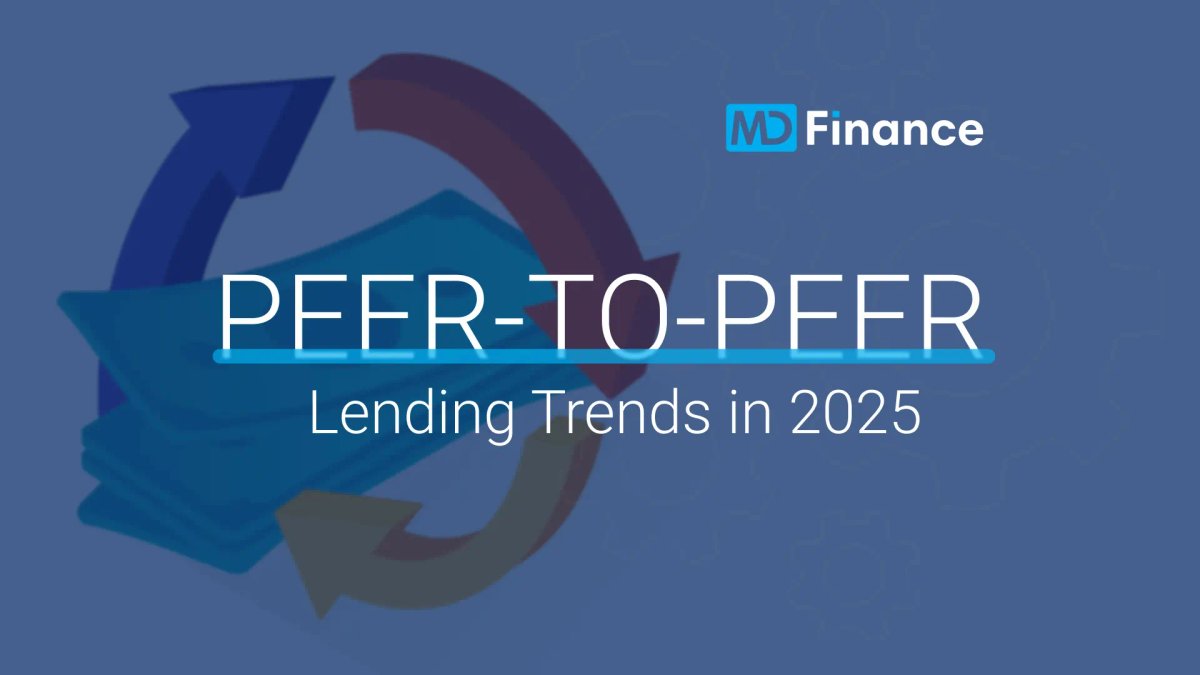FACEBOOK PAYMENTS: BAD NEWS FOR BANKS EVERYWHERE
Published by Gbaf News
Posted on May 5, 2017
11 min readLast updated: January 21, 2026

Published by Gbaf News
Posted on May 5, 2017
11 min readLast updated: January 21, 2026

By Daniel Döderlein, founder and CEO of Auka
Banks and financial services institutions who were among the first to help Facebook realise their first version of a payments solution might be feeling quite safe at the moment. After all, they’re in cahoots with one of the world’s most used platform. Surely a deal with Facebook meets the requirement for a tick in the innovation box, right? I’d caution them against getting too comfortable.
Your Access to the Latest Financial News from across the Globe. Click here to read now
This is Facebook dipping their toes into payments to learn about a huge new market. This partnership is unsurprising – MasterCard is desperate to keep cards relevant. They subsidize and partner with seemingly anyone to keep their business growing, as cards become less relevant in mature markets.
Banks in Europe are extremely conscious – or at least they should be – that January 2018 brings about the second payment services directive (PSD2). While this is an EU regulation, banks around the globe will no doubt be aware of the precedent this will set for how people want to and will do their banking. Unless they make a dramatic shift, the banks will effectively become the backend for financial services offered and controlled by others once they figure out that direct from account is much better than using a third-party, like MasterCard.
PSD2 regulation, from the beginning of next year, gives direct account access to anyone who has applied and been granted the appropriate license.
The effect this regulation has on everyone living (and banking) in Europe can be easily illustrated. Imagine this: you wake up sometime in January 2018, reach over and do your obligatory Facebook check…
Facebook, who already have the required license issued in Ireland, ask you a question: Would you like to see the balance of all your cards and accounts in one place? They say: we will make it easier than ever to simply pay your friends and make payments at shops. Of course there’ll be a few other compelling offers alongside this – apart from it being hassle free and similar to many other third-party services you already use with Facebook.
After you approve this, your bank accounts will be accessible through an easy to use interface that you already use many more times a day than you would ever use the mobile banking app offered by your bank.
Internet banking and banking mobile apps will die because you now use Facebook (or Google, or an Apple app). Your money is still safe and sound in your bank account, but the way you interact with your account and your money will change forever. Banks will lose their customer interface to players who are experts at making the digital experience engaging and problem solving.
Scandinavian banks saw these changes coming and took early action. They now boast the highest levels of bank-owned mobile payment use in the world. What this means for them, is that as companies like Apple (with Apple Pay), Google (with Android Pay) and now Facebook, gain traction in other regions with their current payment solutions, they have yet to enter the Scandinavian market. Why? The banks solutions offer more than just another way to pay.
Right now and until PSD2 comes into effect, all that third-parties like Apple Pay or Facebook can do is create a payment experience that is essentially exactly the same as using a bank card. Until they can blow people away with a completely new experience – which they will – people are starting to losing interest.
So right now, this gives banks the upper hand and a first mover advantage if they decide to take it. If they, as Nordic banks have done, innovate like never before and invest in delivering sticky solutions people actually want to use – before the competition gains massive traction and accounts are opened up – they have the opportunity to remain relevant.
A recent EY survey of 55,000 banking customers in 32 countries found that traditional banking trust is under threat and that relevance with consumers was waning. The resulting report recommended banks undertake a serious overhaul when it came to re-thinking their approach to consumer relationships.
Further, a PWC report from last year, Catalyst or Threat, found that most European consumers were already using digital payments, including mobile. It also suggested that these same consumers were itching to patronise third-parties building financial solutions post PSD2. All of this paints a pretty clear picture. Unless banks take action and do something fairly revolutionary, their customers aren’t going to continue using an outdated system when, in every other aspect of their life, ease of use wins over loyalty.
Signing a deal with a tech behemoth does not guarantee continued relevancy. In a matter of months, that same tech company will be able to access bank customers with or without a formal agreement. Nor does introducing technology – such as NFC (near field communication) – to a payment that can already take place with a card at the store.
So many banks are falling into the trap of repeating what others have done – even when the evidence is mounting up to prove that bank owned NFC wallets do not work long-term. While banks fumble with card payments, app based payments are growing like crazy in the Nordics and in China. Banks must create something that considers all payments situations – enabling commerce, building eco-systems and solving problems. Skip Apple Pay, forget PayPass and don’t make host card emulation (HCE) solutions – this is throwing money down the drain.
So, whilst Facebook is right now having to partner with the likes of MasterCard, this is just the beginning. This is their chance to warm up – and get as many people on board and addicted as possible – whilst they work on game changing payments solutions for a post-PSD2 world and wait out the next nine months.
By Daniel Döderlein, founder and CEO of Auka
Banks and financial services institutions who were among the first to help Facebook realise their first version of a payments solution might be feeling quite safe at the moment. After all, they’re in cahoots with one of the world’s most used platform. Surely a deal with Facebook meets the requirement for a tick in the innovation box, right? I’d caution them against getting too comfortable.
Your Access to the Latest Financial News from across the Globe. Click here to read now
This is Facebook dipping their toes into payments to learn about a huge new market. This partnership is unsurprising – MasterCard is desperate to keep cards relevant. They subsidize and partner with seemingly anyone to keep their business growing, as cards become less relevant in mature markets.
Banks in Europe are extremely conscious – or at least they should be – that January 2018 brings about the second payment services directive (PSD2). While this is an EU regulation, banks around the globe will no doubt be aware of the precedent this will set for how people want to and will do their banking. Unless they make a dramatic shift, the banks will effectively become the backend for financial services offered and controlled by others once they figure out that direct from account is much better than using a third-party, like MasterCard.
PSD2 regulation, from the beginning of next year, gives direct account access to anyone who has applied and been granted the appropriate license.
The effect this regulation has on everyone living (and banking) in Europe can be easily illustrated. Imagine this: you wake up sometime in January 2018, reach over and do your obligatory Facebook check…
Facebook, who already have the required license issued in Ireland, ask you a question: Would you like to see the balance of all your cards and accounts in one place? They say: we will make it easier than ever to simply pay your friends and make payments at shops. Of course there’ll be a few other compelling offers alongside this – apart from it being hassle free and similar to many other third-party services you already use with Facebook.
After you approve this, your bank accounts will be accessible through an easy to use interface that you already use many more times a day than you would ever use the mobile banking app offered by your bank.
Internet banking and banking mobile apps will die because you now use Facebook (or Google, or an Apple app). Your money is still safe and sound in your bank account, but the way you interact with your account and your money will change forever. Banks will lose their customer interface to players who are experts at making the digital experience engaging and problem solving.
Scandinavian banks saw these changes coming and took early action. They now boast the highest levels of bank-owned mobile payment use in the world. What this means for them, is that as companies like Apple (with Apple Pay), Google (with Android Pay) and now Facebook, gain traction in other regions with their current payment solutions, they have yet to enter the Scandinavian market. Why? The banks solutions offer more than just another way to pay.
Right now and until PSD2 comes into effect, all that third-parties like Apple Pay or Facebook can do is create a payment experience that is essentially exactly the same as using a bank card. Until they can blow people away with a completely new experience – which they will – people are starting to losing interest.
So right now, this gives banks the upper hand and a first mover advantage if they decide to take it. If they, as Nordic banks have done, innovate like never before and invest in delivering sticky solutions people actually want to use – before the competition gains massive traction and accounts are opened up – they have the opportunity to remain relevant.
A recent EY survey of 55,000 banking customers in 32 countries found that traditional banking trust is under threat and that relevance with consumers was waning. The resulting report recommended banks undertake a serious overhaul when it came to re-thinking their approach to consumer relationships.
Further, a PWC report from last year, Catalyst or Threat, found that most European consumers were already using digital payments, including mobile. It also suggested that these same consumers were itching to patronise third-parties building financial solutions post PSD2. All of this paints a pretty clear picture. Unless banks take action and do something fairly revolutionary, their customers aren’t going to continue using an outdated system when, in every other aspect of their life, ease of use wins over loyalty.
Signing a deal with a tech behemoth does not guarantee continued relevancy. In a matter of months, that same tech company will be able to access bank customers with or without a formal agreement. Nor does introducing technology – such as NFC (near field communication) – to a payment that can already take place with a card at the store.
So many banks are falling into the trap of repeating what others have done – even when the evidence is mounting up to prove that bank owned NFC wallets do not work long-term. While banks fumble with card payments, app based payments are growing like crazy in the Nordics and in China. Banks must create something that considers all payments situations – enabling commerce, building eco-systems and solving problems. Skip Apple Pay, forget PayPass and don’t make host card emulation (HCE) solutions – this is throwing money down the drain.
So, whilst Facebook is right now having to partner with the likes of MasterCard, this is just the beginning. This is their chance to warm up – and get as many people on board and addicted as possible – whilst they work on game changing payments solutions for a post-PSD2 world and wait out the next nine months.
Explore more articles in the Finance category











